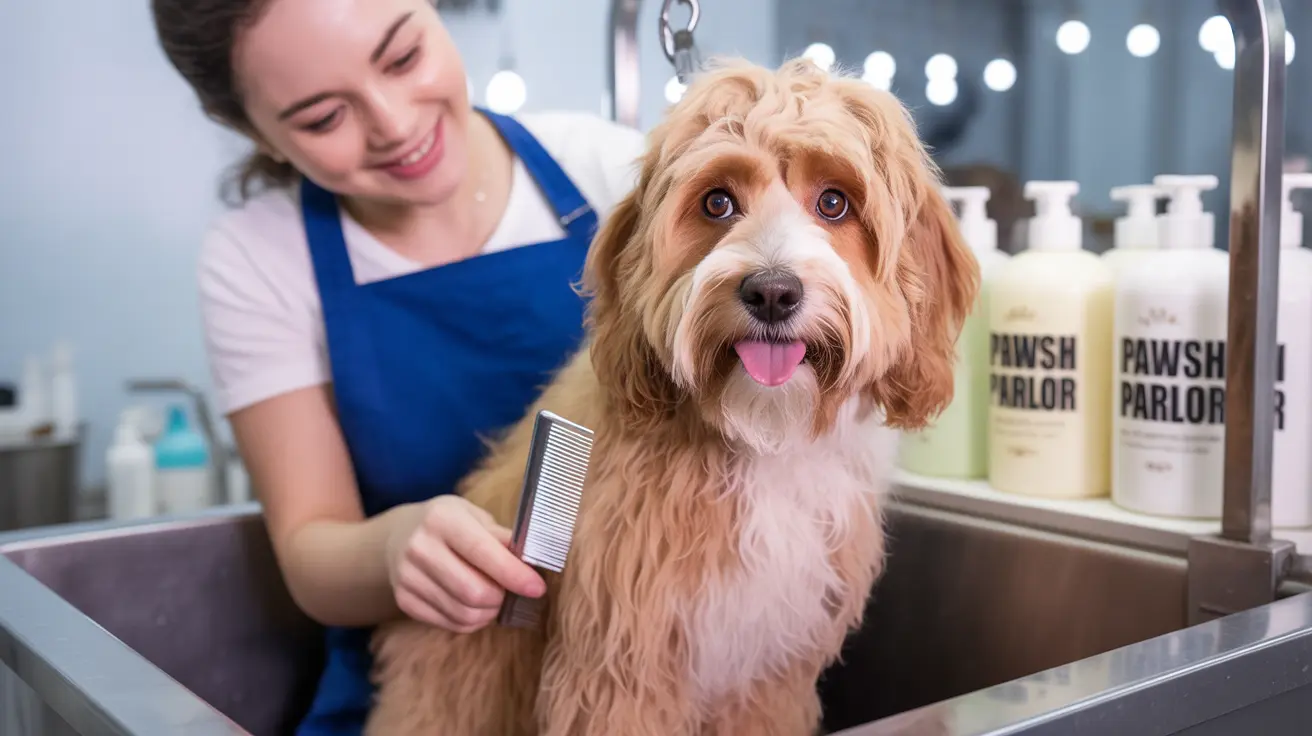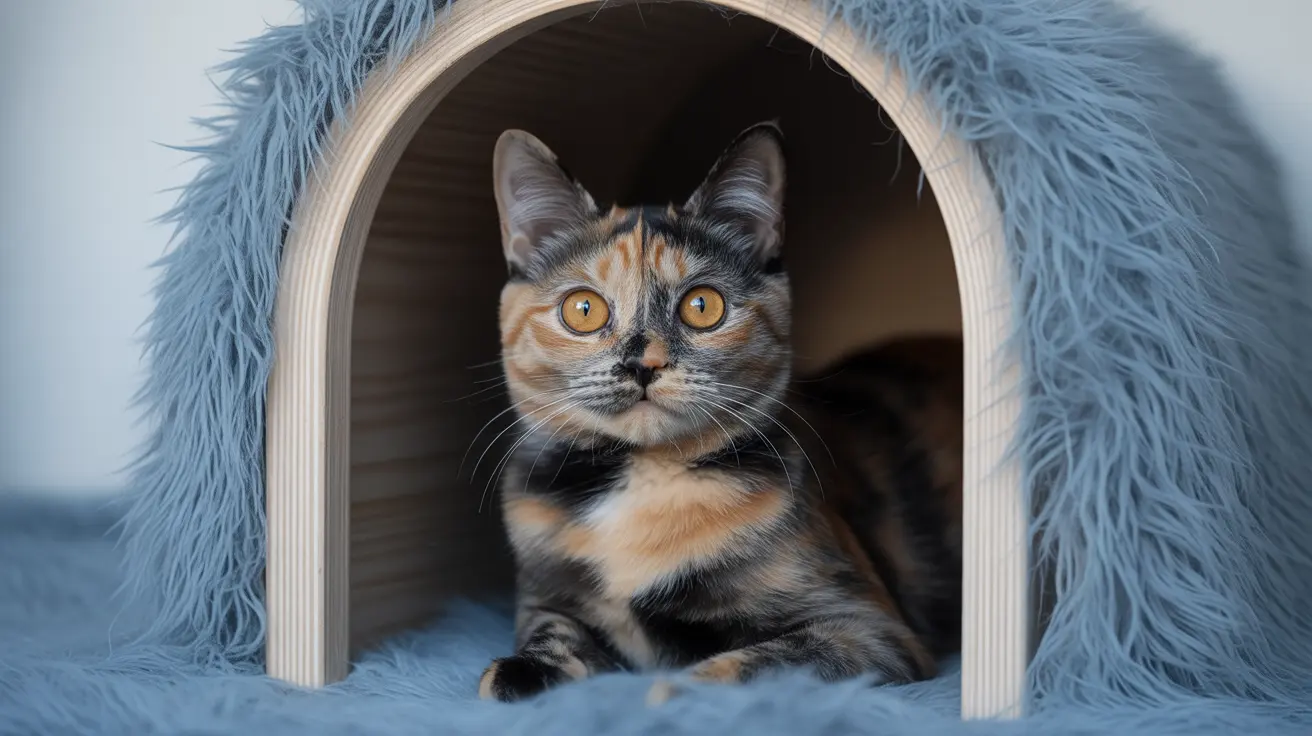The Cavapoo, a delightful crossbreed between a Cavalier King Charles Spaniel and a Poodle, has captured the hearts of dog lovers worldwide. This comprehensive guide explores everything from essential Cavapoo care requirements to health considerations, helping both current and prospective owners understand what makes these designer dogs so special.
Known for their gentle temperament and adaptable nature, Cavapoos typically weigh between 8 to 25 pounds and stand 9 to 14 inches tall. Their size makes them perfect companions for various living situations, from city apartments to spacious suburban homes. Thanks to their Poodle heritage, they're also celebrated for their low-shedding coats, though it's important to note they're not completely hypoallergenic.
Whether you're considering adding a Cavapoo to your family or looking to provide better care for your current furry friend, understanding their unique needs is crucial for ensuring a happy, healthy life together.
Understanding Cavapoo Temperament and Behavior
Cavapoo temperament is one of their most endearing qualities. These dogs inherit the best characteristics from both parent breeds: the loving nature of the Cavalier King Charles Spaniel and the intelligence of the Poodle. Their friendly disposition and Cavapoo intelligence make them excellent family companions. They tend to thrive in various environments, easily transitioning from active playtime to cuddling on the couch with their owners.
Known for their adaptability and sociable nature, Cavapoos typically display these behavioral traits:
- Gentle and affectionate with family members: Cavapoos build strong bonds with their owners and crave attention, making them loving pets who enjoy being involved in daily family life.
- Excellent with children and other pets: Their tolerant attitude and playful demeanor make them ideal companions for families with young kids or other pets in the household.
- Eager to please and highly trainable: With a natural desire to impress, they tend to pick up commands quickly and enjoy learning new tricks.
- Social and outgoing with new people: Cavapoos are rarely shy and usually greet visitors with cheerful enthusiasm.
- Sometimes prone to separation anxiety if left alone too long: Due to their attachment to their families, they may become anxious or distressed when left by themselves for extended periods.
Cavapoo Training Essentials
Early training and socialization are crucial for developing a well-behaved Cavapoo. These intelligent dogs respond best to positive reinforcement techniques and benefit from consistent routines and patience. Training should start as soon as possible to ensure your Cavapoo grows into a balanced and confident adult. Focus on the following areas:
- Basic obedience commands: Teaching sit, stay, come, and other fundamentals will provide structure and make daily life easier.
- Proper socialization with people and other animals: Introducing your Cavapoo to a variety of environments, people, and other pets can help prevent fear and aggression later in life.
- Crate training for house breaking: A consistent crate routine assists in house training and provides your pup with a safe, comfortable space.
- Prevention of separation anxiety: Gradually increasing alone time and utilizing interactive toys can reduce anxiety-related behaviors.
- Positive reinforcement methods: Reward-based training encourages your Cavapoo to repeat good behaviors and helps build a trusting relationship.
Essential Cavapoo Health Considerations
Cavapoos usually enjoy a lifespan of 10–15 years, but as with all breeds, there are certain health concerns to be aware of. Regular veterinary check-ups, a balanced lifestyle, and attentive care are key to ensuring your Cavapoo stays healthy throughout their life.
Common Health Concerns
Being a crossbreed, Cavapoos can inherit medical conditions from either parent breed. By understanding and recognizing these potential issues, you can provide preventative care and ensure your dog’s wellbeing. Common health concerns include:
- Hip dysplasia: This joint issue can cause discomfort and limit mobility. Regular exercise and maintaining a healthy weight can help reduce the risk.
- Patellar luxation: A condition where the kneecap slips out of place, often leading to pain or limping.
- Cavapoo eye problems (including cataracts): Regular eye checks with your veterinarian can detect issues early.
- Heart issues: Both Cavaliers and Poodles are prone to certain heart problems, so keep an eye out for symptoms like coughing or fatigue.
- Ear infections: Their floppy ears can trap moisture and debris, leading to infections if not cleaned regularly.
- Dental problems: Small breeds are susceptible to dental disease, making regular oral hygiene especially important.
- Potential Cavapoo allergies: Allergies can manifest as skin irritations, excessive licking, or digestive upset.
Preventative care, including timely vaccinations and regular check-ups, will go a long way in minimizing health risks.
Grooming Requirements and Maintenance
While Cavapoos are known for their low-shedding coats, maintaining their soft curls or waves requires regular attention. Grooming not only keeps them looking their best but also promotes healthy skin and prevents uncomfortable mats or tangles. A comprehensive grooming routine should include:
- Daily brushing to prevent matting: Frequent brushing—using appropriate brushes—removes tangles and loose hair, making coat maintenance easier.
- Regular professional grooming every 6-8 weeks: Visits to a professional groomer for trims and a thorough cleaning keeps the coat manageable and healthy.
- Consistent Cavapoo ear care to prevent infections: Cleaning ears with vet-recommended solutions helps avoid the buildup of wax and bacteria.
- Regular dental cleaning for optimal Cavapoo dental health: Brushing teeth several times per week and providing dental chews can ward off tartar and gum disease.
- Nail trimming as needed: Keeping nails short prevents discomfort and potential injuries.
- Eye cleaning to prevent tear stains: Regularly wiping the area around their eyes with a damp cloth helps avoid staining and irritation.
Nutrition and Diet Guidelines
A well-balanced diet is essential for your Cavapoo’s overall health and vitality. Feeding the right food helps prevent obesity, keeps energy levels high, and supports a shiny coat and robust immune system. Keep in mind the following nutritional considerations:
- High-quality, age-appropriate dog food: Choose formulas specifically tailored to your dog’s life stage and activity level.
- Portion control based on Cavapoo size and weight: Overfeeding can quickly lead to weight gain; consult your vet for personalized recommendations.
- Regular feeding schedule (2-3 times daily): Consistent meal times support digestion and reduce the chance of overeating.
- Monitoring for food-related Cavapoo allergies: Watch for signs of food intolerance such as itching, digestive upset, or ear problems, and consult your vet if issues arise.
- Fresh water available at all times: Hydration is vital for overall health and to aid in digestion and temperature regulation.
Exercise and Activity Needs
Keeping your Cavapoo physically and mentally stimulated is important for their happiness and longevity. Though not as high-energy as some breeds, Cavapoos still require a balanced routine of exercise and play to prevent boredom and unwanted behaviors.
- Daily walks (30-60 minutes total): Regular outings provide both physical activity and opportunities for socialization with people and other dogs.
- Interactive play sessions: Games such as fetch or tug-of-war help build your bond and burn energy.
- Mental stimulation through puzzle toys: Challenging toys and training games can keep your Cavapoo’s mind sharp and reduce destructive tendencies.
- Supervised outdoor activities: Allowing your Cavapoo to explore a secured yard or dog park gives them variety while ensuring safety.
- Social interaction with other dogs: Playdates and group walks cater to their social nature and support behavioral development.
Frequently Asked Questions
- What is a Cavapoo?
- A Cavapoo is a hybrid dog breed, a cross between a Cavalier King Charles Spaniel and a Poodle, prized for its friendly temperament and soft, low-shedding coat.
- Are Cavapoos hypoallergenic?
- Cavapoos are considered low-shedding and may be suitable for people with mild allergies, but no dog breed is truly hypoallergenic.
- How long do Cavapoos live?
- Cavapoos typically have a lifespan of 10-15 years, with good care enhancing their longevity and quality of life.
- What is the typical Cavapoo temperament?
- They are friendly, affectionate, intelligent, and great with families and children, adapting well to a variety of living situations.
- How big does a Cavapoo get?
- Adult Cavapoos usually weigh 8-25 pounds (5–10 kg) and stand 9-14 inches (30–35 cm) tall, making them a convenient size for most households.
- What common health problems do Cavapoos have?
- Cavapoos may be prone to ear infections, eye diseases, and some hereditary conditions from their parent breeds.
- How often should you groom a Cavapoo?
- Regular brushing several times a week is needed to prevent tangles, with professional grooming every 6-8 weeks recommended for optimal maintenance.
- Are Cavapoos easy to train?
- Yes, they are generally intelligent and eager to learn, making them responsive to positive reinforcement and consistent instruction.
- Do Cavapoos need a lot of exercise?
- Cavapoos require daily walks and playtime to maintain their health and prevent boredom, but they do not need excessive exercise.
- Are Cavapoos good with kids and other pets?
- Yes, Cavapoos are known for their gentle and sociable nature with children and other animals, fitting well into multi-pet households.
With proper care, attention, and love, your Cavapoo can be a wonderful companion for many years to come. Their adaptable nature, loving temperament, and relatively low-maintenance needs make them an excellent choice for various households, from first-time dog owners to experienced pet parents.






